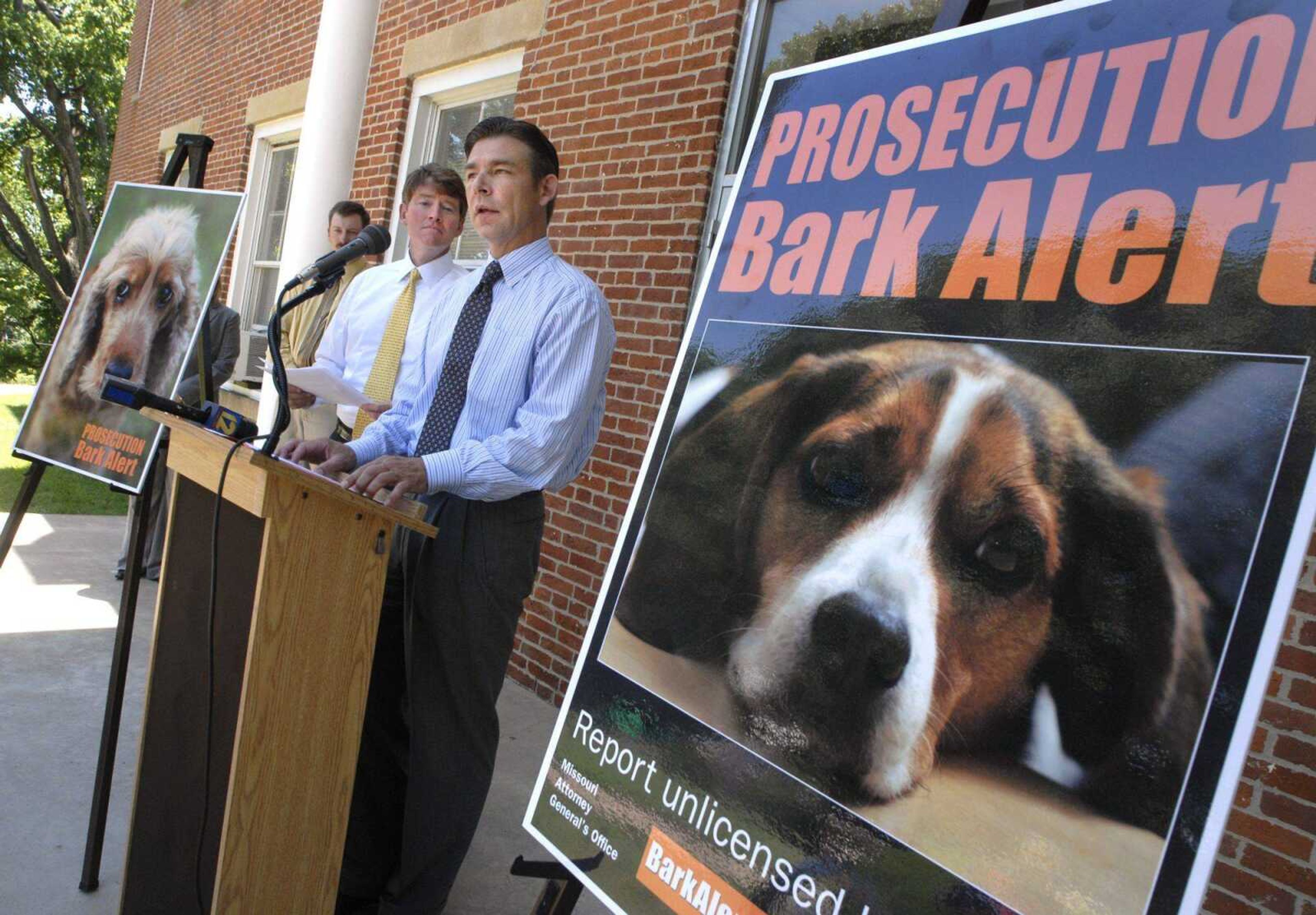Unlicensed dog breeders targeted by Missouri initiative
On Monday, the Missouri Attorney General's Office and the Missouri Department of Agriculture unveiled the second part of a statewide initiative to crack down on unlicensed dog breeders.
On Monday, the Missouri Attorney General's Office and the Missouri Department of Agriculture unveiled the second part of a statewide initiative to crack down on unlicensed dog breeders.
Coined "Prosecution Bark Alert," the initiative works to identify and prosecute previously identified unlicensed breeding facilities, said Missouri Department of Agriculture director Jon Hagler at a news conference on the steps of the Cape Girardeau County Common Pleas Courthouse.
According to the guidelines established in 1992 by the department of agriculture, anyone who keeps on their premises three or more adult female dogs capable of reproducing must be a licensed breeder. Only breeders whose facilities fit the requirements to be considered a "hobby" are exempt from needing licensing.
To be considered a hobby under those guidelines, a breeder can have no more than 10 females, must participate in exhibits or dog shows, and cannot sell any dogs to a broker or pet store. A hobby breeder can only sell dogs to individual consumers or other breeders.
The unlicensed breeders problem in Missouri came about as a result of these regulations not being enforced and the issue being neglected for too long, said Attorney General Chris Koster.
"For a long time, the General Assembly turned a blind eye toward puppy mills," Koster said.
More than 2,000 dogs have been rescued so far as a result of the crackdown, many of them having suffered neglect and abuse at substandard facilities, Koster said.
In addition to often poor health conditions at unlicensed breeder facilities, such operations put properly licensed breeders at a competitive disadvantage, Hagler said.
The first part of "Bark Alert," enacted in February, focused on raising awareness and gathering information -- much of it in the form of anonymous tips -- about these breeders, Hagler said. Now the focus turns to eradicating those facilities through legal action, Hagler said.
"It'll put a lot more teeth in the Bark Alert," Hagler said.
Koster said investigations have already pinpointed seven cases of unlicensed breeding operations he thinks can be prosecuted. Penalties involve $1,000 fines per violation, a punishment that could get costly for an operation with 40-plus dogs, Hagler said.
bdicosmo@semissourian.com
388-3635
Connect with the Southeast Missourian Newsroom:
For corrections to this story or other insights for the editor, click here. To submit a letter to the editor, click here. To learn about the Southeast Missourian’s AI Policy, click here.









